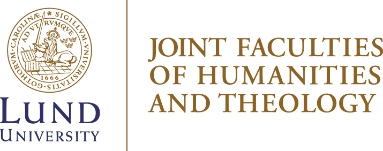Course
Course code:
TRVN05
Credits:
10
NB! The course is not given this semester. The information below was about spring semester 2016.
Study period:
spring semester
2016
Type of studies:
part time, 33 %,
distance course
Study period:
2016-01-18 – 2016-06-03
Language of instruction:
English
Application code:
LU-79251
Eligibility:
A bachelor's degree with a major in theology, religious studies, classical philology, classical archeology, history or the equivalent, and a minimum of 10 ECTS credits in classical Hebrew.
Description
Alongside the Bible, the Talmud is the most widely read text in Jewish tradition. Since it took shape in the early centuries of the Common Era, generations of Jews have studied it, developing their analytical and logical skills. To the religious, the non-religious and scholars alike, it opens a window to Jewish culture in antiquity. In addition to complex legal reasoning, it contains legends, folk tales, scriptural interpretations, magical incantations and observations about theology, medicine and astronomy. As well as background information on the emergence and characteristics of the Talmud, the course offers a close reading of a number of passages, focusing in particular on stories that reflect the concerns and culture of the Jews of the time.
Note!
This course is not open as a freestanding course next semester. It can be open for application within a programme or for students in an exchange programme. Please ask your academic advisor for information.
How to apply
Lund University uses a national application system run by University Admissions in Sweden. It is only possible to apply during the application periods: October–January for autumn semester and June–August for spring semester.
Extended application deadline
Sometimes the application deadline is extended for a specific programme or course. In these cases you will find the message "open for late application" by the programme/course information on universityadmissions.se. You apply with the usual application steps. As long as this message is showing, it is possible to apply, but late applications are processed in order of date, so it is still important to apply as soon as possible. Please note that if the programme/course does not have an extended deadline, it is not possible to apply late.
First or Second Admission Round?
All international students are encouraged to apply to the First admission round. This round takes place many months before the start of a semester and gives students the time they need to pay their tuition fees, apply for and receive their residence permit (if required), find housing, etc.
The Second admission round is an alternative for students from EU/EEA countries as they do not need a residence permit. Non-EU/EEA students will most likely not have enough time to obtain their permit before the start of the semester. However, even EU/EEA students are advised to apply during the First admission round, as some programmes can be applied for only in the January round. Also, this provides applicants with an admission decision much earlier, which is helpful in making decisions about their studies.
Tuition Fees
Non-EU/EEA citizens
Citizens of a country outside of the European Union (EU), the European Economic Area (EEA) and Switzerland are required to pay tuition fees. You pay one instalment of the tuition fee in advance of each semester.
Read more about tuition fees, payments and exemptions
EU/EEA citizens and Switzerland
There are no tuition fees for citizens of the European Union (EU), the European Economic Area (EEA) and Switzerland.
Application fee
If you are required to pay tuition fees, you are generally also required to pay an application fee of SEK 900 (approximately EUR 100) when you apply at universityadmissions.se. You pay one application fee regardless of how many programmes or courses you apply to.
Read more about paying the University Admissions in Sweden application fee and exemptions
